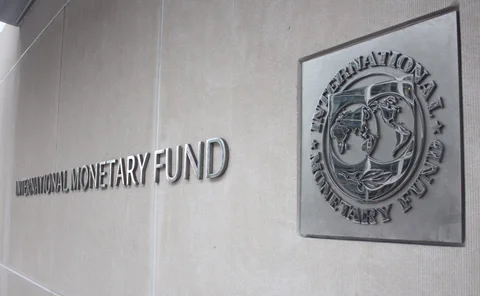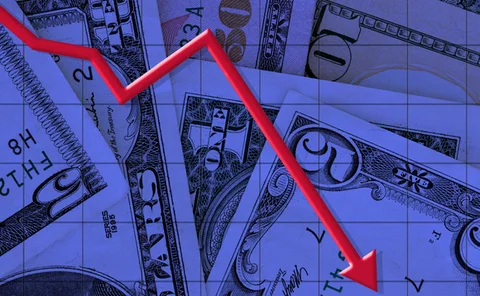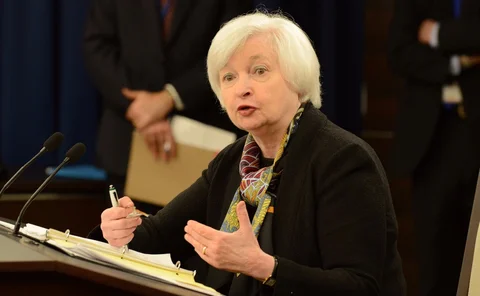Economics
Credit spreads’ limited use as short-term predictors – paper
Researcher examines the accuracy of three sets of credit spreads
Kansas Fed paper looks at impact of recessions on US workers
Participation rate of “prime-age” workers most likely to vary with business cycle, paper says
Spanish paper looks at business cycle’s effects on industry
Industries are not moving uniformly to cohesion with the business cycle, says paper
Paper’s forecasting technique using Markov-switching models
Results outperform Fed’s survey of professional forecasters, says Bank of Spain paper
San Francisco Fed economist explores methods to forecast interest rates
Michael Bauer aims to forecast interest rates based on the current level and long-run trend, and a narrative linking both
UK economy vulnerable to consumption-led recession
Fragile consumer spending could take a toll on growth, former BoE officials warn, leaving the central bank with a tough job ahead
Fed’s Brainard says US is ‘falling short’ in diversifying economics
Federal Reserve Board governor highlights the benefits of diversifying the economics profession, urging students to consider a career before “shutting the door”
Tax cuts should focus on income from capital, French paper argues
Cutting taxation on labour is less effective in boosting growth, researchers say
US taxes low by global standards, say Chicago Fed economists
Overall burden of taxes is low by OECD standards, and taxes on capital income are notably lower than in Germany, economists say
Piecing together a financial theory of stagnation
Ideas presented at recent BIS annual meetings reveal an emerging framework that explains how the financial system may be dragging down the real economy; Hélène Rey was the latest to contribute
Eurozone’s demographics will continue to push interest rates down – paper
Structural policies will take time to reverse impact of adverse demographics, researchers say
Paper proposes method to estimate network of exposures
Researcher draws on aggregate exposures and market data to build a more complete picture of the network of bank exposures
Flexible working may shift Nairu, ECB’s Mersch warns
Technology may increase insecurity and weaken collective bargaining, says senior ECB figure
Singapore’s inflation sees sudden drop in June
Sharp fall in inflation was due to the falling prices of housing maintenance and repairs, triggered by the timing of government rebates
IMF gloom on US and UK balanced by brighter spots elsewhere
IMF raises projections for China, Japan and eurozone as the UK and US falter; maintains global growth forecasts at 3.5% in 2017
BoE economists issue ‘call to arms’ for macro-prudential research
Researchers outline a simple framework to help understand the macro-prudential “balancing act”, but say there is a long way to go in developing a definitive model
BoE paper warns escape from secular stagnation may ‘beggar thy self’
Authors outline an unappealing situation where the only escape comes from currency depreciation, but may nevertheless end up harming domestic welfare
Non-banks drive rebound in cross-border banking – BIS
First-quarter statistics show non-banks helped drive a turnaround of cross-border banking flows, which had been in retreat
Eurozone tax systems subsidise housing debt, ECB paper argues
Under-taxation of returns to home equity drives distortions, researchers say
BoE’s Broadbent: globalisation has been largely a good thing
Bank of England deputy says flexible labour market has helped dull the pain of adjustment to trade shocks, while lower prices have most benefited the poorest groups
Yellen warns of debt impact on productivity
Fed chair states in “strongest possible terms” that the current spending by the US government is unsustainable and could harm productivity
CEPR paper sketches ‘radical, realistic’ Greek reform plan
Stanford and Yale economists outline “unorthodox” policies that could put Greek debt on a sustainable footing – and might be acceptable to all negotiating parties
Big data sheds light on income risk – Minneapolis Fed research
Better sources of data have allowed economists to gain new insights into how income risk changes over the cycle, says researcher





















